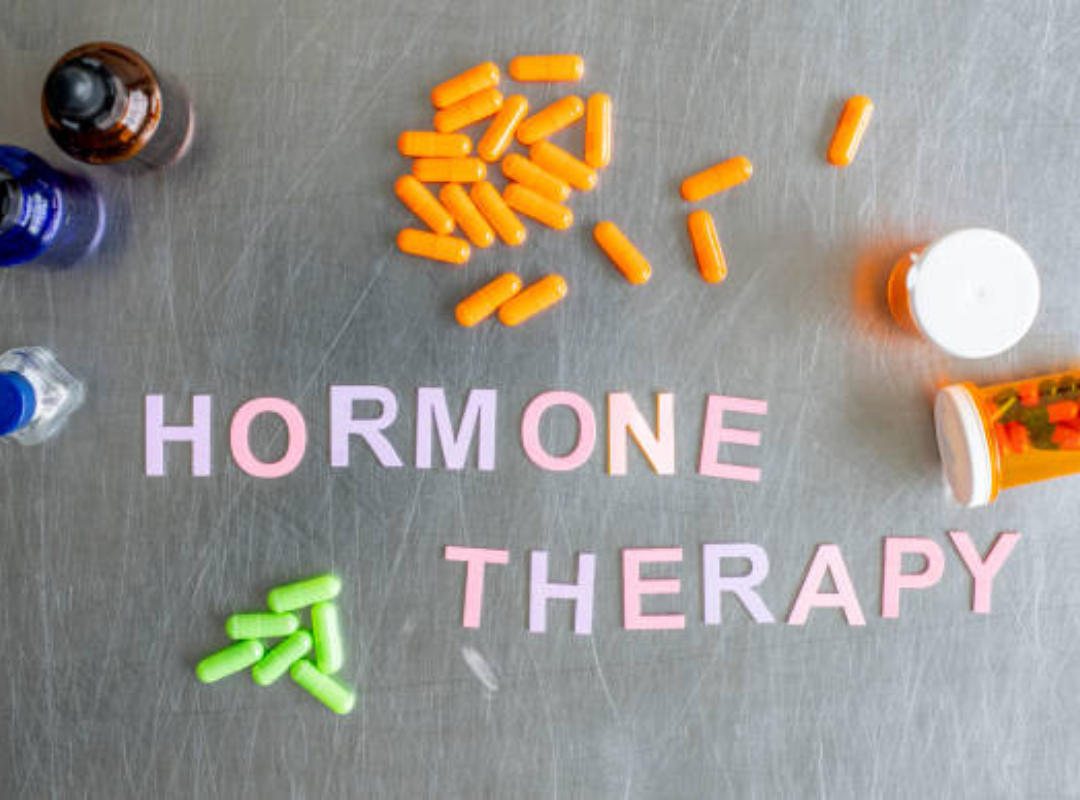Hormone Replacement Therapy (HRT) has been a cornerstone treatment for individuals dealing with hormonal imbalances, particularly during menopause and andropause. Over the years, advancements in medical science have led to more personalized and effective treatments, ensuring better patient outcomes. With increasing awareness about hormone health, ongoing research is driving the future of HRT towards safer, more efficient, and tailored solutions.
In recent years, innovation in biotechnology, artificial intelligence, and genetic testing has paved the way for precision medicine in hormone therapy. The emergence of bioidentical hormones, new delivery methods, and cutting-edge research is revolutionizing how healthcare providers approach hormone regulation. This article explores the future trends and innovations in Hormone Replacement Therapy, shedding light on the transformative changes shaping the industry.
The Evolution of Hormone Replacement Therapy
HRT has evolved significantly since its early use in the 1940s. Initially, synthetic hormones derived from animal sources were the primary option available. While effective, these treatments often carry risks of adverse effects due to their non-human structure. Over time, the development of bioidentical hormones, which closely mimic the body’s natural hormones, has led to safer and more effective treatments.
Modern HRT now emphasizes individualized therapy, taking into account genetic factors, lifestyle, and specific health conditions. The shift towards precision medicine ensures that patients receive the right type and dosage of hormones tailored to their needs, minimizing side effects and maximizing benefits.
Cutting-Edge Innovations in Hormone Replacement Therapy
Bioidentical Hormones and Personalized Treatment
One of the most significant advancements in HRT is the use of bioidentical hormones. These are chemically identical to those naturally produced in the body, reducing the risk of side effects often associated with synthetic hormones. Personalized treatment plans now incorporate genetic testing, allowing healthcare providers to determine the most suitable hormonal balance for each individual.
With the rise of compounding pharmacies, patients can receive customized hormone formulations tailored to their specific deficiencies. This trend ensures that treatment is more effective, addressing not just symptoms but also the root cause of hormonal imbalances.
Advanced Drug Delivery Systems
Traditional HRT methods, such as oral pills and injections, are being replaced by more efficient and convenient delivery systems. Innovative methods like transdermal patches, subdermal implants, and nasal sprays are gaining popularity. These alternatives offer a more consistent hormone release, improving absorption and reducing fluctuations that can lead to side effects.
For instance, hormone pellet therapy, where small pellets are implanted under the skin, provides a steady hormone supply for months. This reduces the need for daily medication and ensures a more stable hormonal balance. These advancements make HRT more accessible and patient-friendly.
AI and Machine Learning in Hormone Therapy
Artificial intelligence (AI) and machine learning are revolutionizing the healthcare industry, including Hormone Replacement Therapy. AI-driven diagnostic tools can analyze patient data to predict hormone imbalances accurately. This allows for early intervention and personalized treatment plans based on real-time health analytics.
Wearable health devices and mobile applications also contribute to this transformation by continuously monitoring hormone-related symptoms. This data-driven approach ensures that treatment is optimized for each patient, enhancing long-term health outcomes.
Growing Popularity of Hormone Replacement Therapy
As advancements in HRT continue to expand, many individuals seek cutting-edge treatments tailored to their needs. Hormone Replacement Therapy in Tampa has gained significant traction due to the availability of specialized clinics offering state-of-the-art treatment options. The region is home to leading healthcare providers who utilize the latest innovations, such as bioidentical hormones and advanced diagnostic tools, to provide customized hormone therapy.
With a growing emphasis on wellness and longevity, more people in Tampa are turning to HRT for improved quality of life. Whether addressing menopausal symptoms, testosterone deficiencies, or overall hormone optimization, the demand for personalized hormone solutions continues to rise in this region.
Future Trends in Hormone Replacement Therapy
Regenerative Medicine and Stem Cell Therapy
Regenerative medicine is playing an increasingly important role in hormone therapy. Stem cell research has shown potential in stimulating the body’s natural hormone production, reducing the need for external hormone supplementation. Scientists are exploring ways to regenerate damaged endocrine tissues, potentially offering long-term solutions for hormone deficiencies.
This cutting-edge research could revolutionize HRT, providing patients with more sustainable and natural ways to restore hormonal balance. As clinical trials progress, regenerative medicine may become a cornerstone of future hormone therapy.
Gut Microbiome and Hormone Health
Recent studies have highlighted the connection between gut health and hormone balance. The gut microbiome plays a crucial role in hormone metabolism, influencing estrogen, testosterone, and cortisol levels. Future HRT approaches may incorporate probiotics, prebiotics, and dietary interventions to optimize gut health and enhance hormone therapy effectiveness.
By addressing gut health alongside traditional HRT, patients may experience improved hormone regulation, reduced inflammation, and enhanced overall well-being. This holistic approach is gaining traction as researchers uncover the intricate link between the gut and endocrine system.
Plant-Based and Natural Alternatives
The demand for natural hormone therapy options is growing as patients seek alternatives to synthetic treatments. Herbal medicine, adaptogens, and plant-derived hormone precursors are being explored as complementary approaches to traditional HRT.
For example, phytoestrogens—natural compounds found in soy, flaxseed, and certain herbs—mimic estrogen in the body and may help alleviate menopausal symptoms. While not a complete replacement for HRT, these natural alternatives offer additional support for those looking for integrative health solutions.
Conclusion
The future of Hormone Replacement Therapy is marked by groundbreaking innovations that prioritize safety, efficiency, and personalization. From bioidentical hormones and advanced delivery methods to AI-driven diagnostics and regenerative medicine, the landscape of HRT is evolving rapidly. These advancements ensure that patients receive more precise and effective treatments, enhancing overall health and well-being.
As research continues, the integration of gut health, natural alternatives, and cutting-edge technology will further refine hormone therapy. With increasing accessibility and awareness, individuals seeking hormonal balance can look forward to a future where HRT is more tailored, efficient, and aligned with their unique physiological needs.




